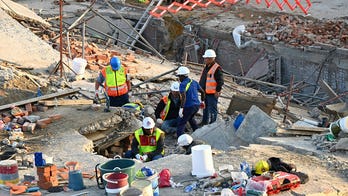Stella Assange decried the prosecution of her husband as an assault on the principle of truth, amid a key hearing that could determine his potential extradition to the US on espionage charges.

WikiLeaks founder Julian Assange's wife, Stella, has vehemently condemned the US extradition case against her husband, labeling it an "attack on truth." Assange is currently facing a crucial hearing in London, with the outcome holding implications for his possible extradition to the US to face espionage charges.
The US has provided assurances that Assange's rights will be upheld and that he will not face the death penalty if extradited. However, Assange's legal team contends that these assurances are insufficient and cannot be relied upon. The High Court in London is deliberating on the validity of these assurances and their compatibility with the European Convention on Human Rights, which guarantees free speech and media protections.

Assange is indicted on 17 espionage charges and one charge of computer misuse related to the publication of classified US documents on his website, WikiLeaks. American prosecutors allege that Assange conspired with former US Army intelligence analyst Chelsea Manning to obtain and disseminate these sensitive files.
Assange's supporters, including his wife Stella, argue that he acted as a journalist by exposing US military misconduct in Iraq and Afghanistan. They maintain that extraditing him would subject him to a politically motivated prosecution and deny him a fair trial.
The outcome of Monday's hearing will significantly impact Assange's legal fate. If he prevails, it will set the stage for an extended appeal process. If the court accepts the US assurances, it will mark the end of his UK-based legal challenges.
However, Assange's legal team is prepared to seek intervention from the European Court of Human Rights if necessary. Additionally, President Biden has indicated that he is considering a request from Australia to withdraw the case against Assange and allow him to return home.
The hearing has sparked protests outside the High Court in London, with supporters chanting for Assange's freedom and demanding an end to his persecution. They argue that prosecuting Assange for publishing information in the public interest stifles freedom of the press.
Assange's physical and mental health have reportedly deteriorated during his prolonged legal battles. He has spent the last five years in a high-security British prison and seven years prior to that inside the Ecuadorian Embassy in London.
The US extradition case against Julian Assange has raised fundamental questions about the limits of free speech and the potential consequences for whistle-blowers who expose government secrets. The outcome of this high-stakes hearing will have far-reaching implications for the future of journalism and the protection of sources in the digital age.










